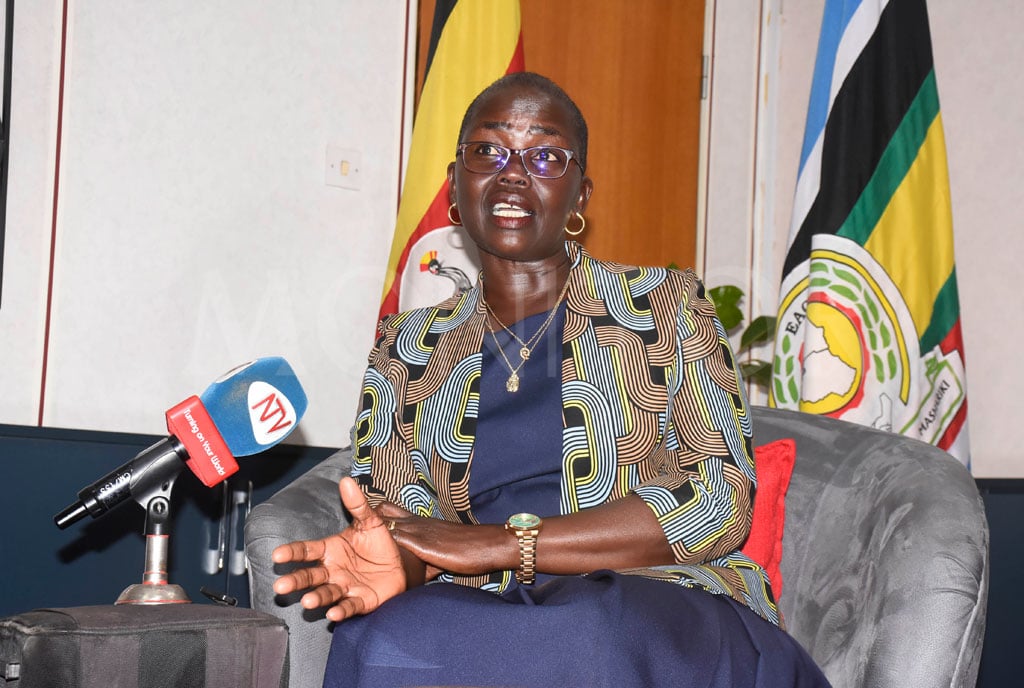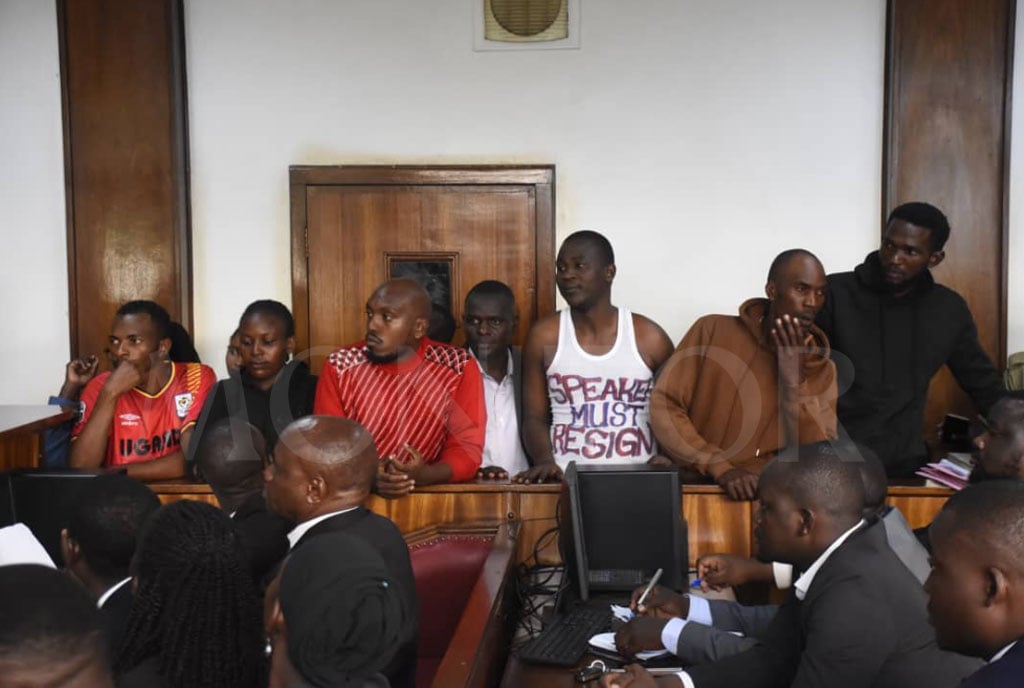
Director of Public Prosecutions (DPP) Jane Frances Abodo speaks during an interview with Monitor at her office in Kampala on August 5, 2024. PHOTO/ISAAC KASAMANI
Following immense pressure mounted against her office, Director of Public Prosecutions (DPP) Jane Frances Abodo has decided to drop the charge of “idle and disorderly” against some of the suspected anti-corruption demonstrators.
The chief government prosecutor explained she had to take an “administrative step” to have the idle and disorderly charge dropped.
“Most of our laws inherited from our colonial masters need cleaning up. If you look through the Penal Code Act, a number of laws are really archaic. And as the President said about ‘idle and disorderly,’ nobody should be charged with that because you can’t be idle in your own country,” DPP Abodo said in an interview at her office in Kampala yesterday.
She added: “…Some of these laws we don’t have to apply them mechanically; we have to look at our surroundings. What is our surrounding now and do we really need to charge people with this? Administratively, we removed idle and disorderly charges and we left the common nuisance charges.”
Late last month, more than 100 youth were arrested by police and other security agencies for marching to Parliament as they protested what they called rampant corruption in Parliament and the country at large.

Some of the July 23, 2024 March to Parliament protesters are seen in the dock at Buganda Road Chief Magistrates' Court on the same day. PHOTO/ISAAC KASAMANI
The youngsters were presented before Buganda Road, Nakawa, and City Hall courts. The DPP charged them with being idle and disorderly, as well as being a common nuisance.
However, her office faced intense criticism from legal experts, including law professors from Makerere University, for charging the youth, who were peacefully marching, with colonial-era offences, some of which have been annulled by the Constitutional Court.
But speaking to Monitor yesterday, DPP Abodo instead scoffed at Parliament for not having done its work to have some of the laws repealed from the law books.
She said as long as these laws remain, people will be charged with them.
“…Parliament has not done its work about that, it’s still the law, there is no court that has come out to outlaw it (the idle and disorderly law). My office came under so much attack that we charged people with non-existent laws, laws that have been repealed and we said, no, these laws are still there, actually, recently, we received the new edition of the Red Volumes and I looked through them and we still have the offence of common nuisance as Section 148 and idle and disorderly is still as Section 150,” she said
“So, Parliament has to do its work and remove them but since they are still there, my office should come under such much attack. There was a case in 2018 where people referring to that idle and disorderly was outlawed, it wasn’t. It wasn’t part of it up to this morning, it was there.”

Director of Public Prosecutions (DPP) Jane Frances Abodo speaks during an interview with Monitor at her office in Kampala on August 5, 2024. PHOTO/ISAAC KASAMANI
Mr Chris Obore, the director of communications at Parliament, last evening said the Parliament would do its work through the existing procedures.
“The courts have done their part, the Parliament will also do its part according to procedural directives. There is a procedure for laws to be repealed. Parliament on its own, does not repeal laws. Most laws are originated by government. Parliament will do its work through existing laws,”Mr Obore said.
The law says
Article 120 (5) states that the DPP while exercising his or her powers under this article, shall have regard to the public interest, the interest of the administration of justice and the need to prevent abuse of legal process.
Likewise, Article 120 (6) states that in the exercise of the functions conferred on the DPP, shall not be subject to the direction or control of any person or authority.
Speaking to this publication last evening, human rights lawyer Nicholas Opiyo said the institutional independence of the Office of the DPP is a constitutional command and that the same must be guarded jealously starting with the DPP herself.
“…it must be guarded jealously from both politicians and from other forms of influence, but the first person to guard the independence has to be the DPP herself in the way she discharges her duties,” Mr Opiyo said.
He also noted that it is difficult to discern whether the DPP acted due to pressure from the President and the public, or if she was independently responding to the public interest and sentiment in deciding to drop the idle and disorderly charges.
Likewise, another human rights lawyer Eron Kiiza said it was unfortunate that the DPP realised late that the charges of idle and disorderly are ambiguous.
“She has belatedly awakened to legal sense. The public has to hold her accountable, it’s a public office, there was no other way but to cry out. They have to hold these officers in scrutiny,” Mr Kiiza said.








